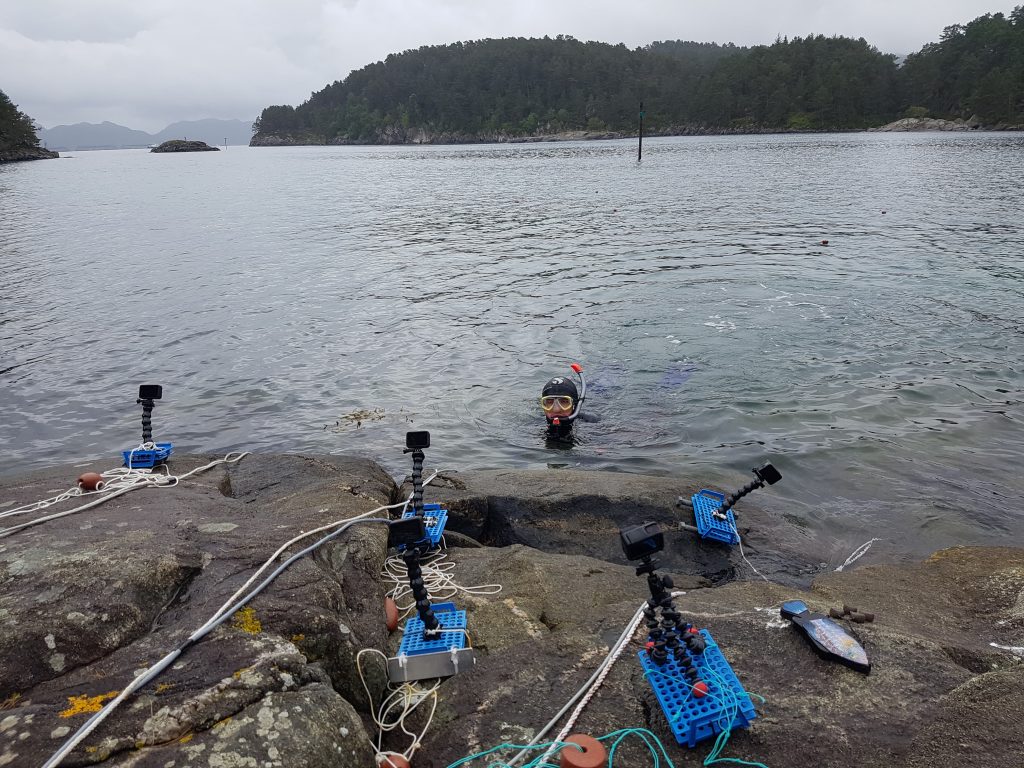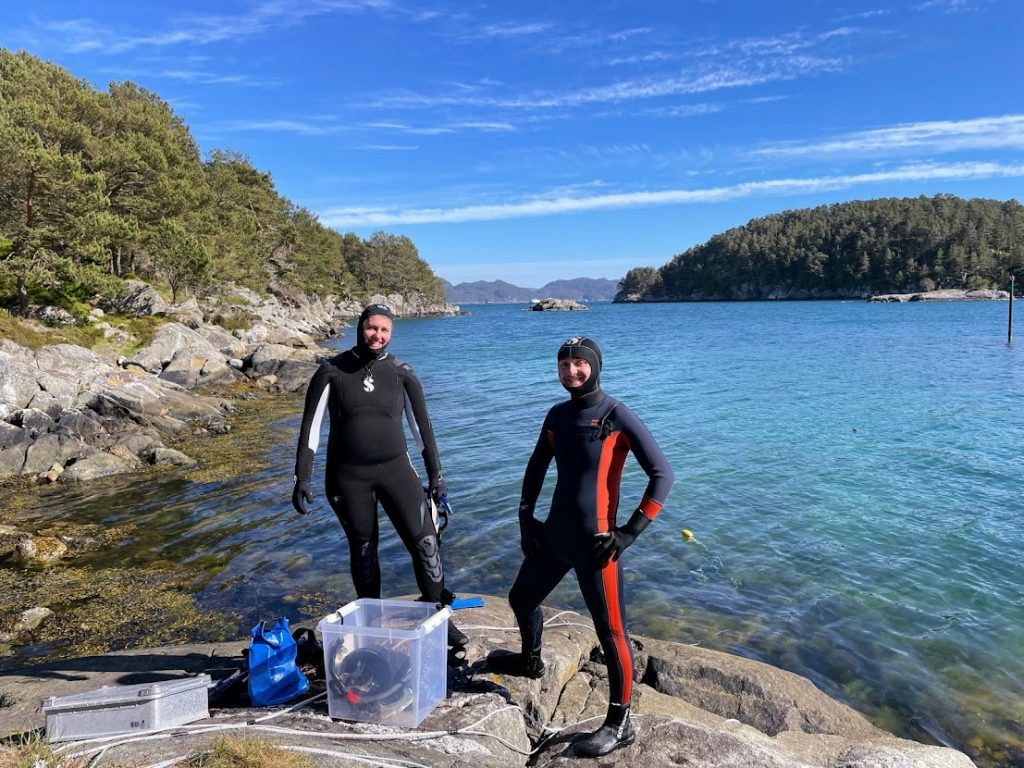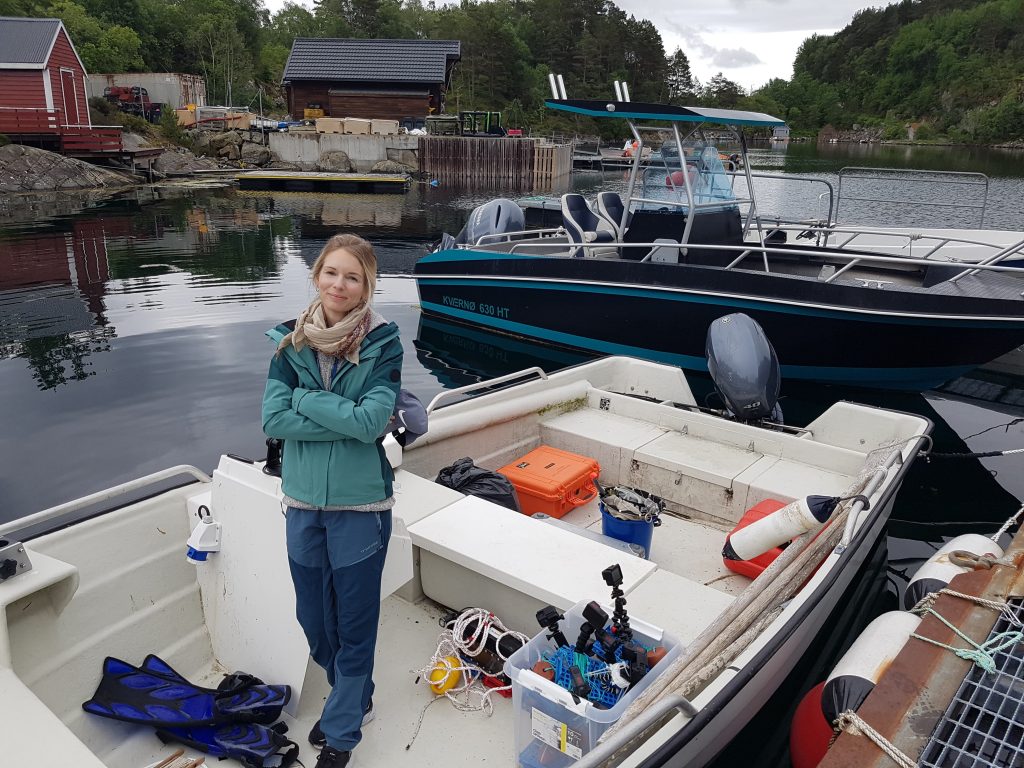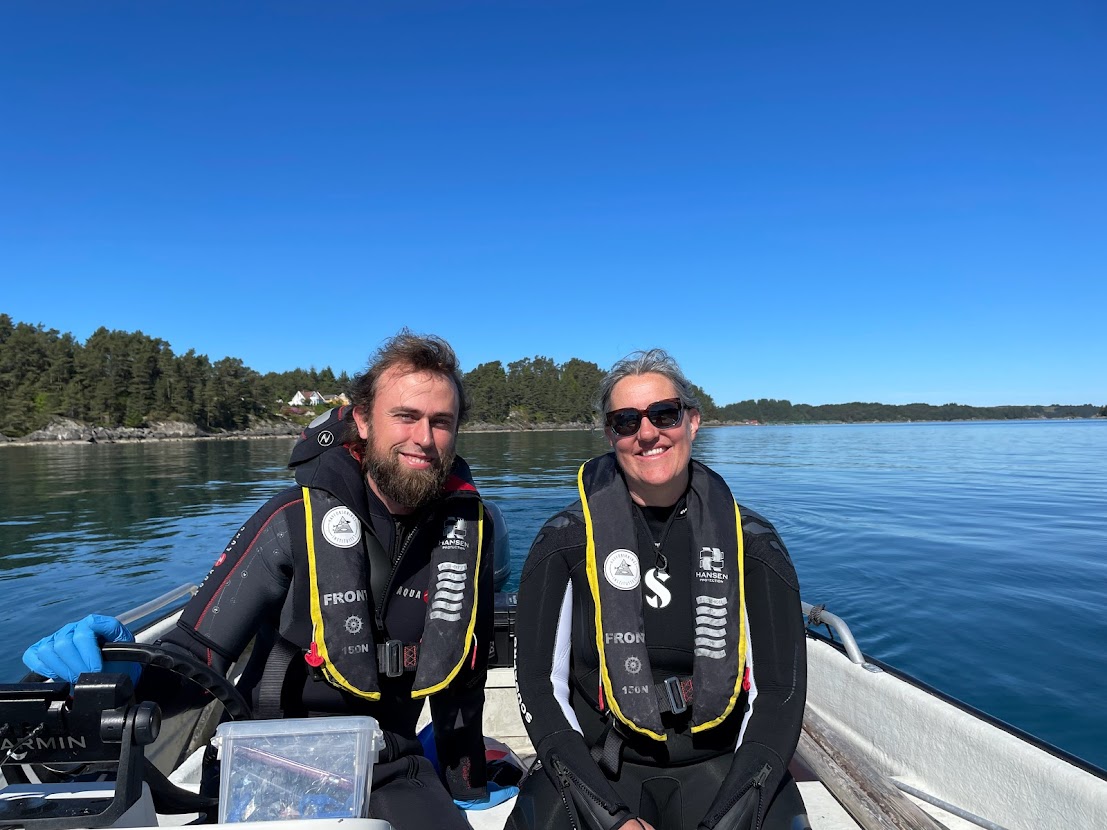16 June 2022 – Kim Halvorsen, Tonje Knutsen Sørdalen, Anne Berit Skiftesvik and our team study the ecology and reproduction of wrasse in a small MPA in Austevoll, Norway. More than 15000 individuals have been tagged with PIT-tags since 2017. Understanding how fishing and temperature affects mating behavior and the phenology of the reproductive season is important because the wrasse fishery is managed based on closing fishing during the spawning season. Males matter; in corkwing wrasse they are responsible for building nests and provide parental care for eggs until they hatch. We monitor how long they nest, how attentive they are and how many females they spawn with, using go-pro cameras and an array of 12 RFID antennas. This provides important ground-truth data for the CoastVision project, with the goal of developing automated re-identification of individual fish based on their unique skin patterns. Our collaborator Holly Kindsvater (Virginia Tech) visited us last week, and we had some fantastic field days and alot of interesting discussion, developing new ideas for the project for the coming years. Ben Ellis, a Master student at the University of Plymouth, is working with us for the spring and summer, collecting data for his dissertation. He will (among other things) investigate stability of individual behavioral traits of the nesting males and how it relates to their ability to fend of smaller sneaker males or being trapped in a wrasse pot.




